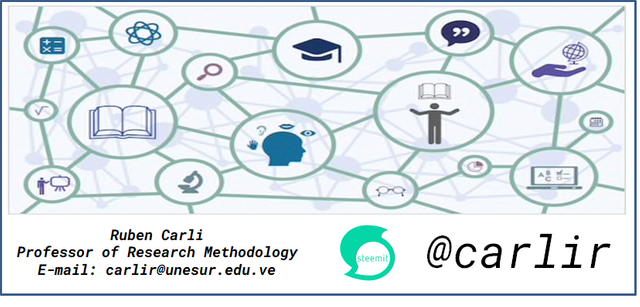
The way organizations are managed has evolved throughout history, however, with the incorporation of Information and Communication Technologies (TIC's), and the progress of the latter in the late twentieth century and early twenty-first century, has made really important changes, therefore, current managers must take these into account to adapt to new organizational and management schemes. In this regard, it is worth mentioning that individuals working in an organization are bio-psycho-social beings, therefore, their emotional conditions that are part of their private life affect them, so that they drag family or existential problems into their relationships with others, which occurs due to poor management of their emotions or responses to them.
In this sense, Piñango and Monteferrante (2007) point out that "if organizations functioned as apparatuses, management would be a very simple task: everything programmed would be carried out, objectives would be met, conflicts between people would not exist, nor would corruption or the fulfillment of commitments. Therefore, emotional aspects are important in the management of organizations, both for managers and workers.
That is why modern managers are torn between giving importance to tasks or to people. Although this is not a new dilemma, in recent years much importance has been given to the individual within the organization. According to Nava, Pelekais and Tirado (2006), within the organizational environment, a new paradigm has emerged that emphasizes the use and importance of the individual within the organization, the Emotional Intelligence (IE), which is considered as another type of intelligence, without leaving aside the cognitive intelligence or the intellectual coefficient (CI), However, EI is an ability or skill that allows the individual to know and manage his own feelings, to interpret or confront the feelings of others, to feel satisfied and be effective in life, as well as to create mental habits that favor his own productivity.

Source
In this sense, we speak of emotional intelligence as a determining aspect in interrelationships in organizations. It is at this point that the concept of neuromanagement is mentioned, which according to Braidot (2009), is a discipline that explores the intellectual and emotional mechanisms linked to the management of organizations and people on the basis of new knowledge generated in the field of neurosciences. In this context, managers must have the skills to make the right decisions, understood as the selection of a course of action in the face of several alternatives, which must be made taking into account those emotional aspects that intrinsically correspond to all the actors involved in organizations.
This point is made because, in many organizations, managers make decisions without taking into consideration these emotional aspects, therefore, the results of their actions are not as expected, preventing the participation of workers, or in some cases, decisions negatively affect the organizational climate, product of the emotional interpretation of a fact, by these workers.
In view of this, the concept of neuromanagement has come to occupy a preponderant place in modern organizations, in which managers must develop skills such as emotional leadership. The profound leader has learned to govern his emotional states, he knows them as inherent to him, and rather than rejecting them, he incorporates them into his structure, he knows they are there, therefore, this leader is able to manage his emotions in order to find a balance in his relationship with the social context and with himself. These aspects represent the axiological part of the managerial management of organizations and the way of making decisions, however, in many companies, not to say, in a great majority, still do not recognize the importance of this concept, but beyond these points, there are organizations in which the decision-making process is directed according to the needs of financial, technical and organizational resources, leaving out the emotional aspect of the people who work in that organization.

- Braidot, N. (2009). Neuromanagement. Ediciones Ganica S.A. Argentina.
- Nava, Pelekais y Tirado (2006). Emotional intelligence and its influence on the organizational climate in middle management levels of SMEs. Telo Magazine, published 22-06-2006. Dr. Rafael Belloso Chacín University URBE.
- Piñango, R. y Monteferrante, L. (2007). People in Participatory Organizations. Debates IESA Volume XII, Number 4, October-December 2007.


Hi @carlir emotional intelligence is no longer just a title
It is now one of the most in-demand skills for managers, both in public organizations and private companies. The positive impact of emotional intelligence, especially in managers, ranges from a better understanding with their work team, to something tangible such as the expansion of their opportunities to get a promotion in the short term. But the benefits are not only professional, it also has a positive impact on personal life. Very good post, thank you and success
Downvoting a post can decrease pending rewards and make it less visible. Common reasons:
Submit